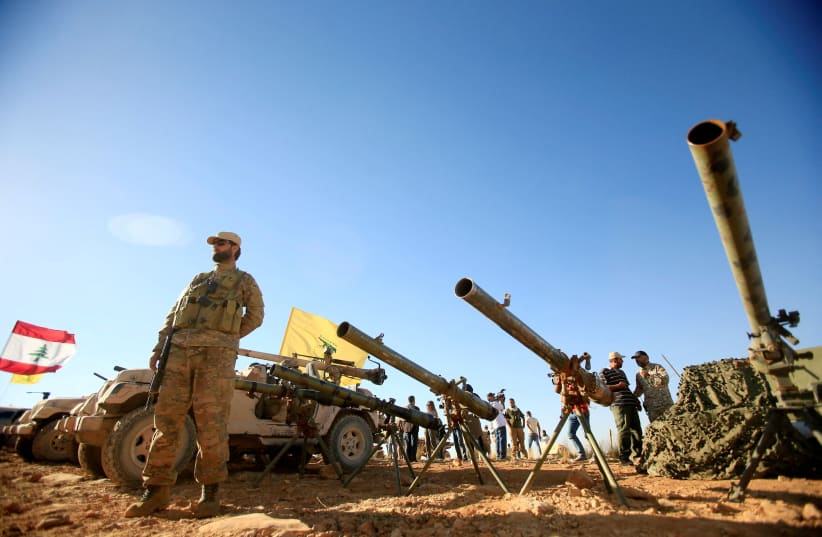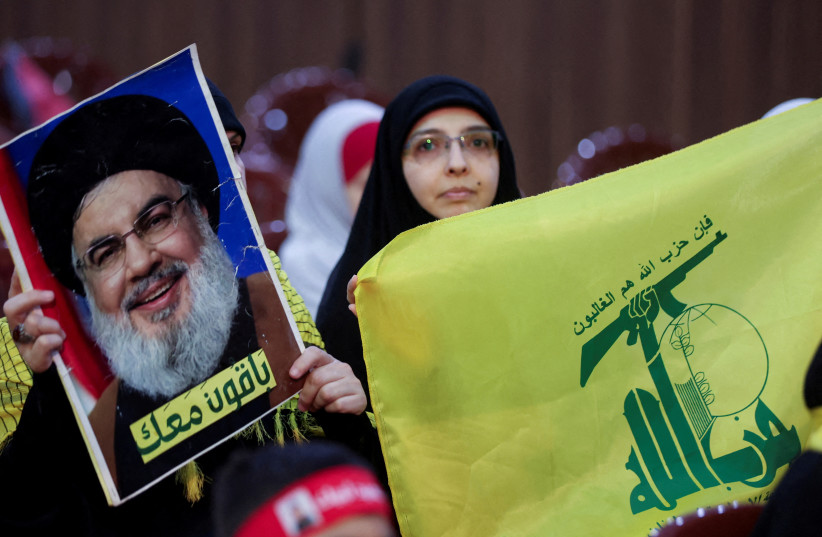The IDF attacked multiple Hezbollah terror targets in southern Lebanon on Monday night, including in the city of Hermel deep in Lebanese territories.
The IDF attacked a Hezbollah base in the city of Hermel deep in Lebanon on Monday night, killing five people, according to Lebanese reports.
דיווחים בלבנון: "מטוסי קרב של חיל האוויר תקפו בהרמל", צפונית לבעלבכ שבעומק לבנון@ItayBlumental @OmerShahar123 pic.twitter.com/172SFQfgyu
— כאן חדשות (@kann_news) June 10, 2024
Hermel is the largest city in the Baalbek area and a Hezbollah stronghold that is located 15 km from the Syrian border. It served as a key combat equipment smuggling route. These attacks are now defined as the deepest point where the Israeli air force attacked, according to reports in Lebanon.
On Tuesday morning, the IDF announced that IAF attacked overnight a logistics devision of the terrorist organization Hezbollah, which was also used to move combat equipment into Lebanon and within the country.
According to the announcement, two targets were attacked in the Baalbek area, and additional terror targets were struck in the Yitroon area in southern Lebanon, including a military facility and two military buildings of the terrorist organization Hezbollah.
The IDF had emphasized that the attacks were in response to Hezbollah's attack on the Israeli UAV on Monday.
Hezbollah strongholds within the civilian population
In late April, an Israeli intelligence official revealed detailed allegations of Hezbollah's clandestine military sites within Lebanese villages, warning that civilians could suffer in any future conflict, as reported by The Jerusalem Post.
The official revealed aerial photographs of the two villages Muhaybib and Shaqra to foreign correspondents and marked alleged rocket silos, tunnels, and anti-tank nests. The official also asserted that these villages, while seemingly ordinary, are covert military strongholds, and highlighted Israel's concern over Hezbollah's growing arsenal and the threat it poses.
Since the 2006 war with Israel, Hezbollah has increased its capabilities, positioning itself as a defensive force against Israel. The Israeli official emphasized the strategic dilemma the country faced: attacking Hezbollah could cause significant civilian casualties, while inaction could leave Israel vulnerable to rocket attacks.

